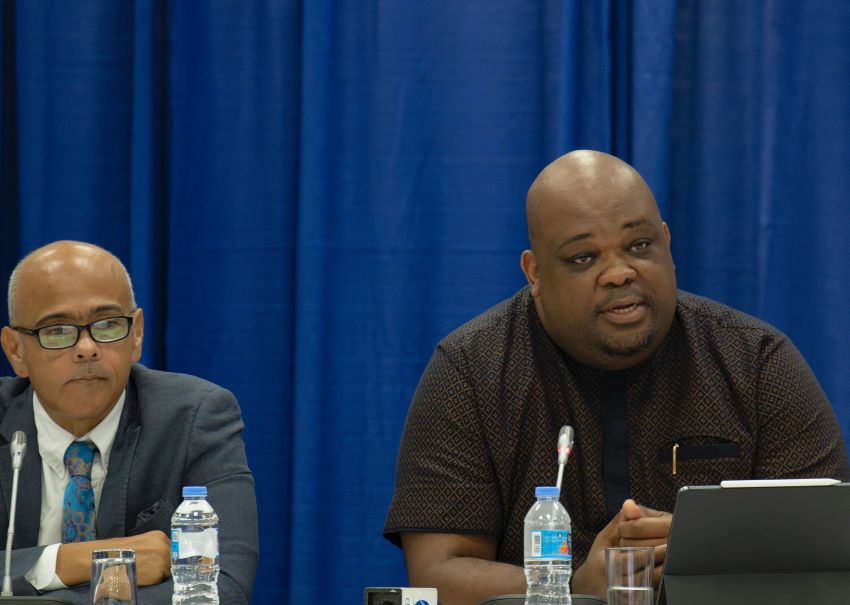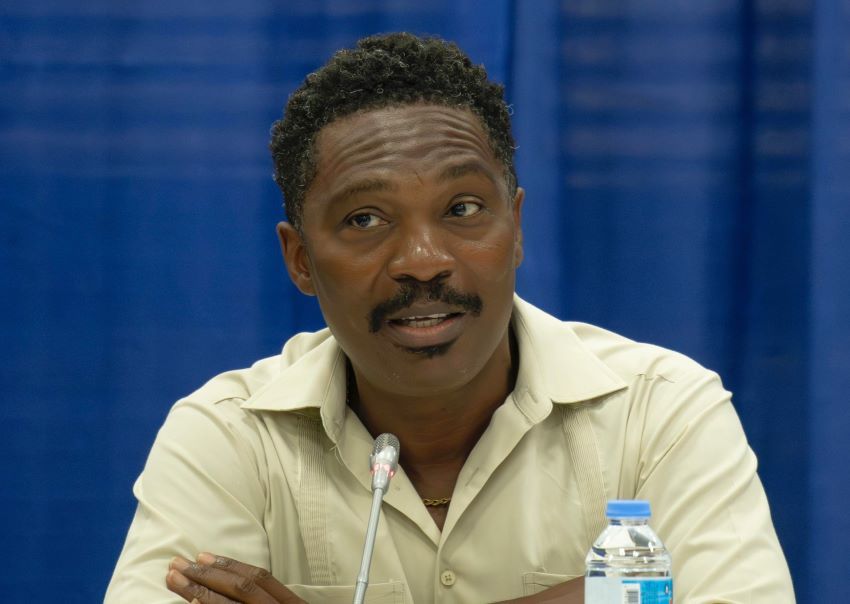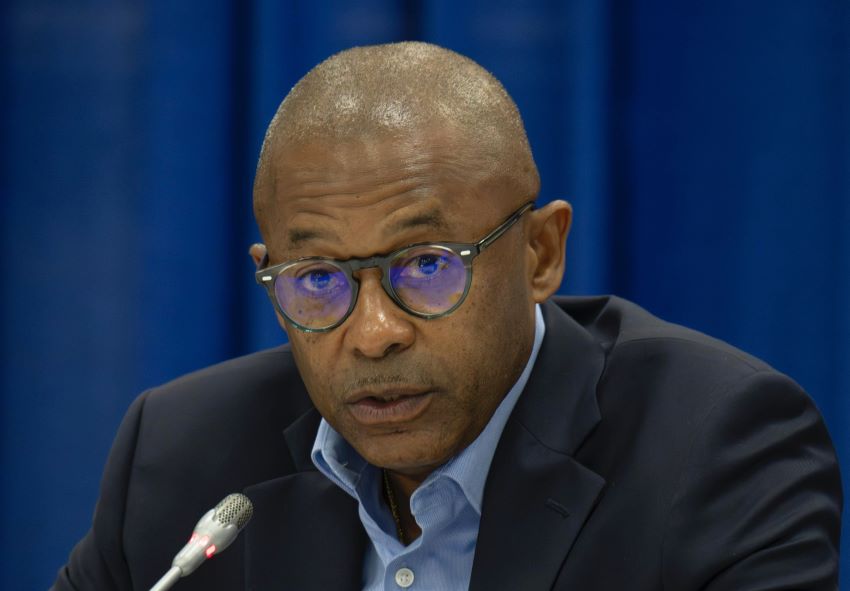
Government officials attending the recent opening meeting for the United Nations Economic Commission for Latin America and the Caribbean Damage and Loss Assessment Mission all agree that Barbados must build up its climate resilience.
This view was expressed by Minister in Economic Affairs and Investment, Chad Blackman; Minister of Planning and Development – Prime Minister’s Office, Dr. William Duguid; Minister of the Environment and National Beautification, Green and Blue Economy, Adrian Forde; and Minister of Tourism and International Transport, Ian Gooding-Edghill.
Minister Blackman, who chaired the meeting at the Lloyd Erskine Sandiford Centre, provided background information regarding the specific details about the impact of Hurricane Beryl on Barbados.
He stated that a national damage assessment was undertaken by the Department of Emergency Management, in collaboration with the Barbados Statistical Service after the initial passing of the system, and impacts relative to the housing, tourism, coastal, and fishing sectors were recorded.
“Support, through technical assistance and grant funding, was prioritised due to Barbados’ economic situation, including that the country is currently under the IMF programme, and therefore, with respect to external shocks, this event comes at a time when the country, notwithstanding its growth, still has a lot of inherent challenges that it has to address,” Mr. Blackman stated.
He added that the assessment of the consultants from Eckler Ltd. is critical as it will provide a more detailed assessment of the environmental, tourism, fisheries, agricultural, economic, and social sectors, which will allow for the quantification and estimation of costs of all the damages that were sustained due to the impact of the hurricane on Barbados.

Minister Duguid reiterated that the tremendous impact of Hurricane Beryl, specifically the intrusion of the sea, which affected roads on the south coast and beaches on the west coast, was a sign that the country needs to be more prepared.
He stated that the experience of a Category four hurricane so early in the hurricane season is unprecedented, and suggested that it is a clear indicator of the climate crisis that the world is currently experiencing.
Minister Forde said that climate change is real and what the country experienced first-hand will continue throughout the rest of the hurricane season.
He stated that the American National Hurricane Center reported that over the next couple of months approximately 30 different systems of various categories, are expected, which can devastate economies, specifically small open economies like Barbados, in record time.
The Environment Minister explained that the 35-year-old break water system in the harbour, where there is an interlocking dolo system, made up of five-tonne dolos (concrete blocks designed to ‘dissolve’ waves), did not work. He is of the view that this is a signal for the country to build its resilience.
“We have to have the financial assistance to be able to move forward better, and not only in terms of our fishing industry, but our coastal landscape running from the west, especially the west coast, to the south coast.
“We have to now be able to build our investment in our brains and our break waters using the science, so that we can do far better, have better resilience because resilience must be the operative word, and of course, we will need the financial wherewithal to do it,” he told attendees.

Minister Gooding-Edghill agreed that resilience must be the focal point of future discussions.
“We have to maintain our earnings as we grow the Barbados economy, of course, to protect jobs, and to ensure as we go forward, we can have a more resilient plan…. It is important that we recognise that building resilience must be the order of the day. The costal infrastructure has to be deemed greater priority in the scheme of things, and you also have to look to follow through on how best we can recover, and recover in the fastest possible time,” he stated.
He added that Barbados is heavily dependent on tourism, not just via the airport, but also through the seaport. He explained that although the airport had not largely been impacted, the seaport witnessed disruptions, particularly in the re-development area.
Mr. Gooding-Edghill said that Government and its stakeholders have to look at ways to see how best they can create a more resilient coastal line, and it is a necessity because both the south and the west coasts of Barbados contribute significantly to tourism earnings.
